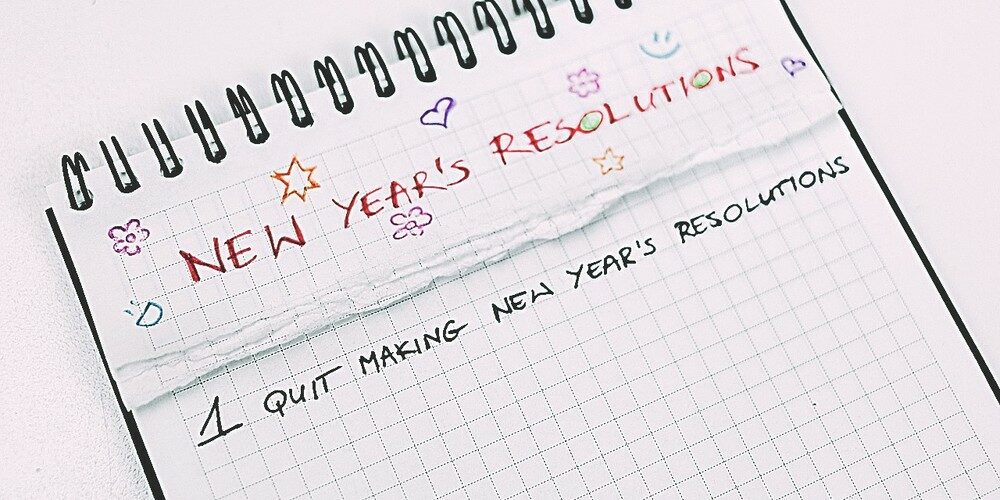With the end of December coming up faster than one’s ability to even remember the new year resolutions we made at the beginning of this year, let alone figure out if you’ve achieved them, take a look at these statistics and see why setting smaller and realistic goals in 2020 is the way to go.

According to Forbes, in 2018 around 80% of Americans failed to upkeep their resolutions by February whilst a University of Scranton survey showed that a meagre 8% of the respondents truly succeeded in achieving their New Year’s goals by the end of the year.
However, a 2019 Australian Institute of Management (AIM) survey showed that 57% of responders said >50% of them achieved their resolutions in 2018.
These are shocking statistics but not unforeseeable in hindsight. So, are Australians just better at keeping by their words or is there another trick to this?
Let’s have a look at the data from those surveys.
The American 2018 Statista Survey showed that of the respondents:
- 53% wanted to save money
- 45% wanted to lose weight/get into shape
- 22% wanted to learn a new skill or hobby
The AIM 2019 survey showed that of the respondents:
- 67% wanted to learn a new skill
- 65% wanted to get healthy/exercise more
- 61% wanted to get a new job
“By learning a new skill, many respondents indicated that they wanted to learn a new language, learn a new instrument, or to complete an MBA to further their business training,” – Ben Foote, the CEO of The Australian Institute of Management.
It appears that the Australians had set more concise, smaller and easier to implement goals that have a higher success rate than having a broad generic resolution.
 We are all guilty of happily setting new year resolutions looking to improve ourselves in some aspect only to have our motivation defeated by the grinding cycle of our work and social commitments. We’re only human after all and any pertinent life-threatening concerns that we need to deal with, such as staying behind at work in the hopes of grabbing that bonus, studying for exams which will bring you closer to that pay rise or even keeping track of all your mates’ social events, will drain you of any energy you wanted to reserve for those resolutions that you (let’s face it) probably drunkenly made at your mate’s NYE party.
We are all guilty of happily setting new year resolutions looking to improve ourselves in some aspect only to have our motivation defeated by the grinding cycle of our work and social commitments. We’re only human after all and any pertinent life-threatening concerns that we need to deal with, such as staying behind at work in the hopes of grabbing that bonus, studying for exams which will bring you closer to that pay rise or even keeping track of all your mates’ social events, will drain you of any energy you wanted to reserve for those resolutions that you (let’s face it) probably drunkenly made at your mate’s NYE party.
So, this year instead of having a ‘I want to’ mentality with your resolutions, change it to an ‘I can’ mentality through setting smaller goals.
The word – goal – has a positive connotation of flexibility to allow gradually working towards a desired result, whereas the word- resolution – can create an urgent sense of burden to go cold turkey in order to attain success.
Want to get healthy and exercise more?
Don’t rush into contracting yourself into a gym membership that you’ll eventually not use because you’re too tired after work or need to organise the household in the morning. Instead, aim to bring lunch into work for atleast 3 out of your 5 workdays and do some research into structuring yourself a 30 minute workout session to do at home at least once every two days while cooking dinner.
Want to learn that new language?
Download a language app and set a reminder to go on that app for 10 mins every day (or go on it during your morning trip to the bathroom at work).
Break your goal down so you can do it bit by bit each week to ensure accountability so you can build a habit out of it.
Now I asked our SKL Team about their new year goals and their answer were very reflective of their personality and goals. Some of them even gave me some tips on how they will work on attaining that mentality of staying motivated throughout the year.
John – “Spend at least 10 minutes in a park-like environment every day, which will give me more peace of mind and fresh air. That way I can take more walks in Hyde Park which is what I want to do more of.”
Aliza – “Start meditating in 2020. I will be joining a meditating workshop in the city so I can attend classes.”
Jas – “Deep breathe more. I can achieve that by taking 10 deep breaths every hour.”
Eleanor – “Travel overseas with someone/other people. I can put up images that remind me of the places I’d like to visit – pictures on my bedroom wall and phone wallpaper. Kind of like a vision board.”
Jenny – “Work less.”
Marica – “I want to get my Mandarin proficiency to an HSK-2. I can download some language apps and will be getting a tutor to help me.”
Kate – “One of my goals is to regain flexibility like children have without aches and pains! To do this, I can move my body more including more yoga and dancing. And if I do need to sit for longer periods, then I will sit with my feet on the seat in a crossed legged, and other, position to stretch my body while seated (easier to do when not sat in an office with people watching!).”
Aaliyah – “I want to be more fiscally responsible by not going to any musical festivals or concerts in the second half of the year.”
And for myself – my goal is to be able do 10 push ups by the end of the year, which was shamefully my resolution in 2017 but I’ll make it a goal to find time to do 5 push ups each week and write up a banner above my bed to remind myself to do so.
So, do you reckon our goals are realistic? Ask yourself this question too before you make yours for the upcoming 2020 year.
Happy New Year from all of us at SKL!












